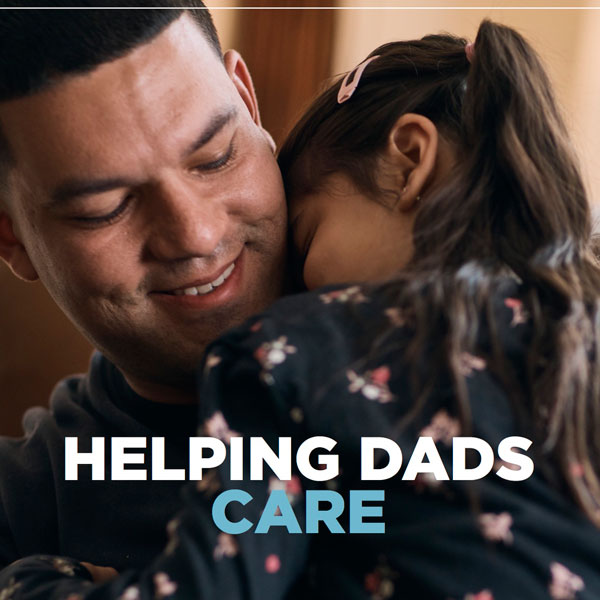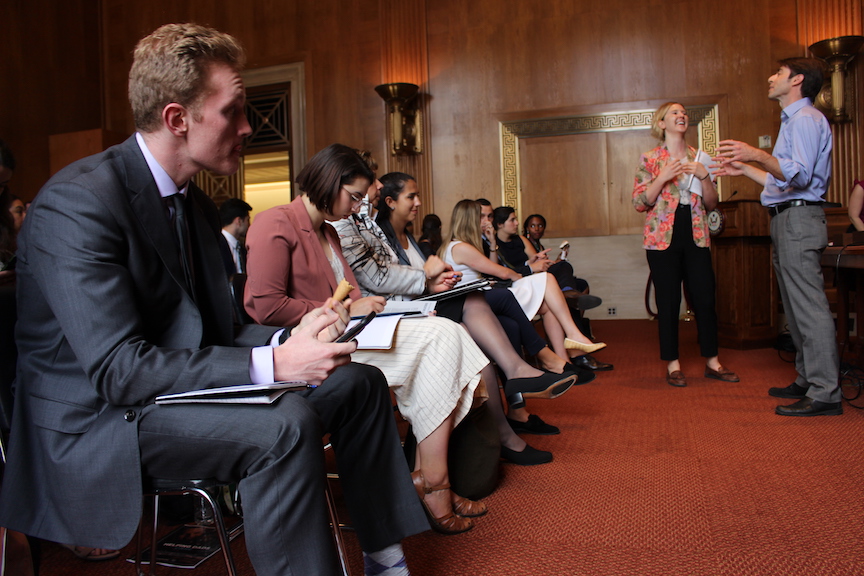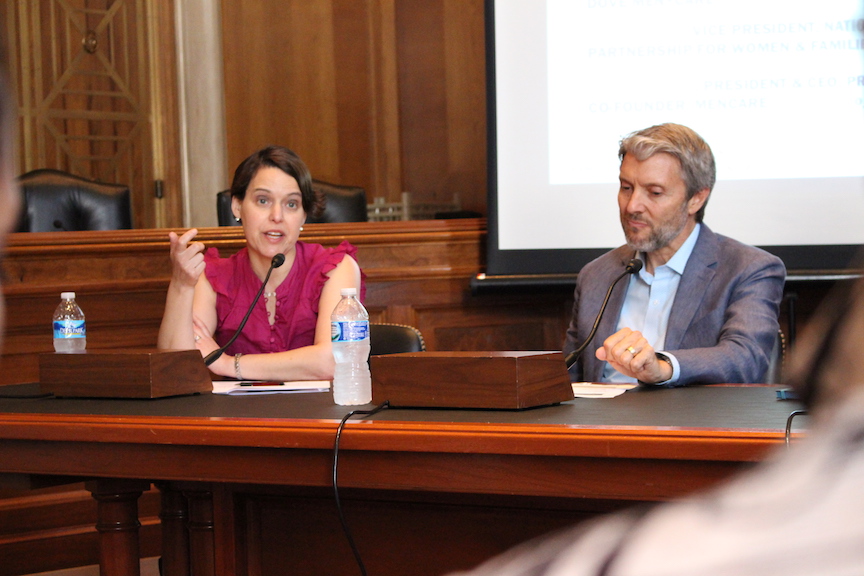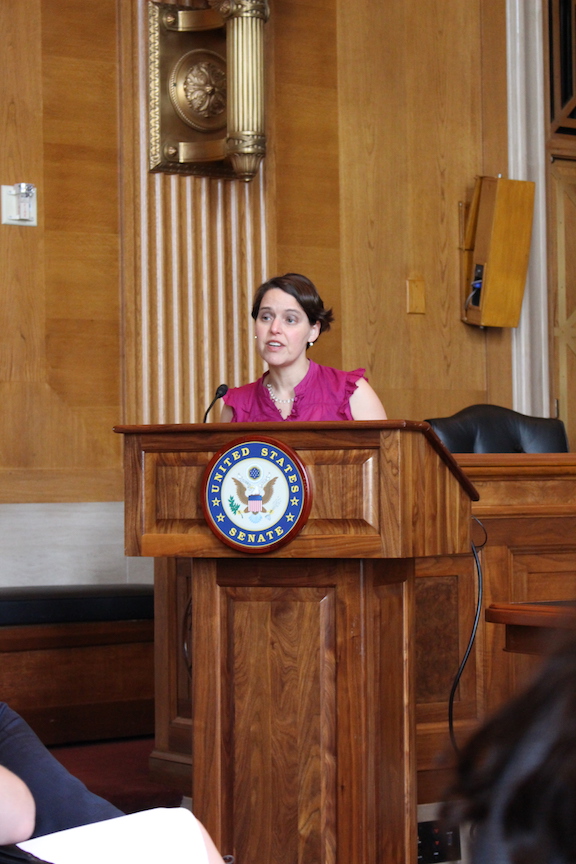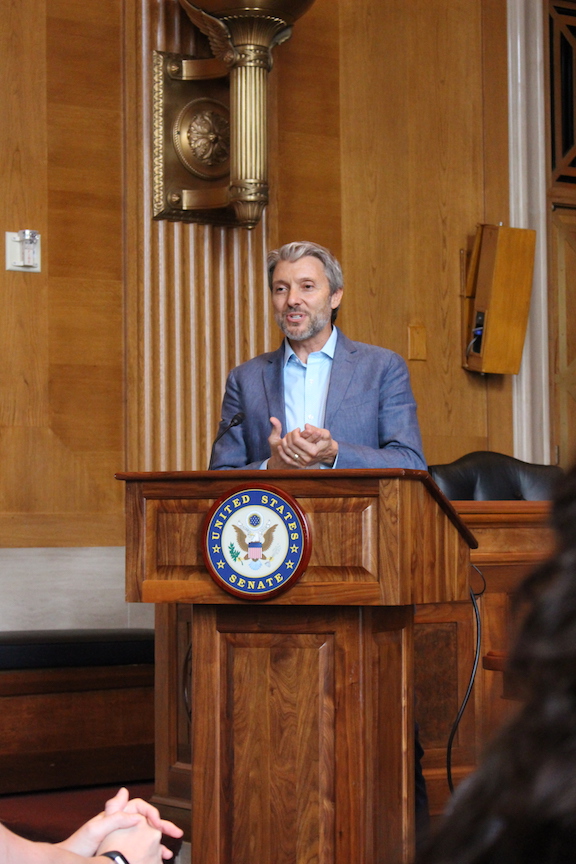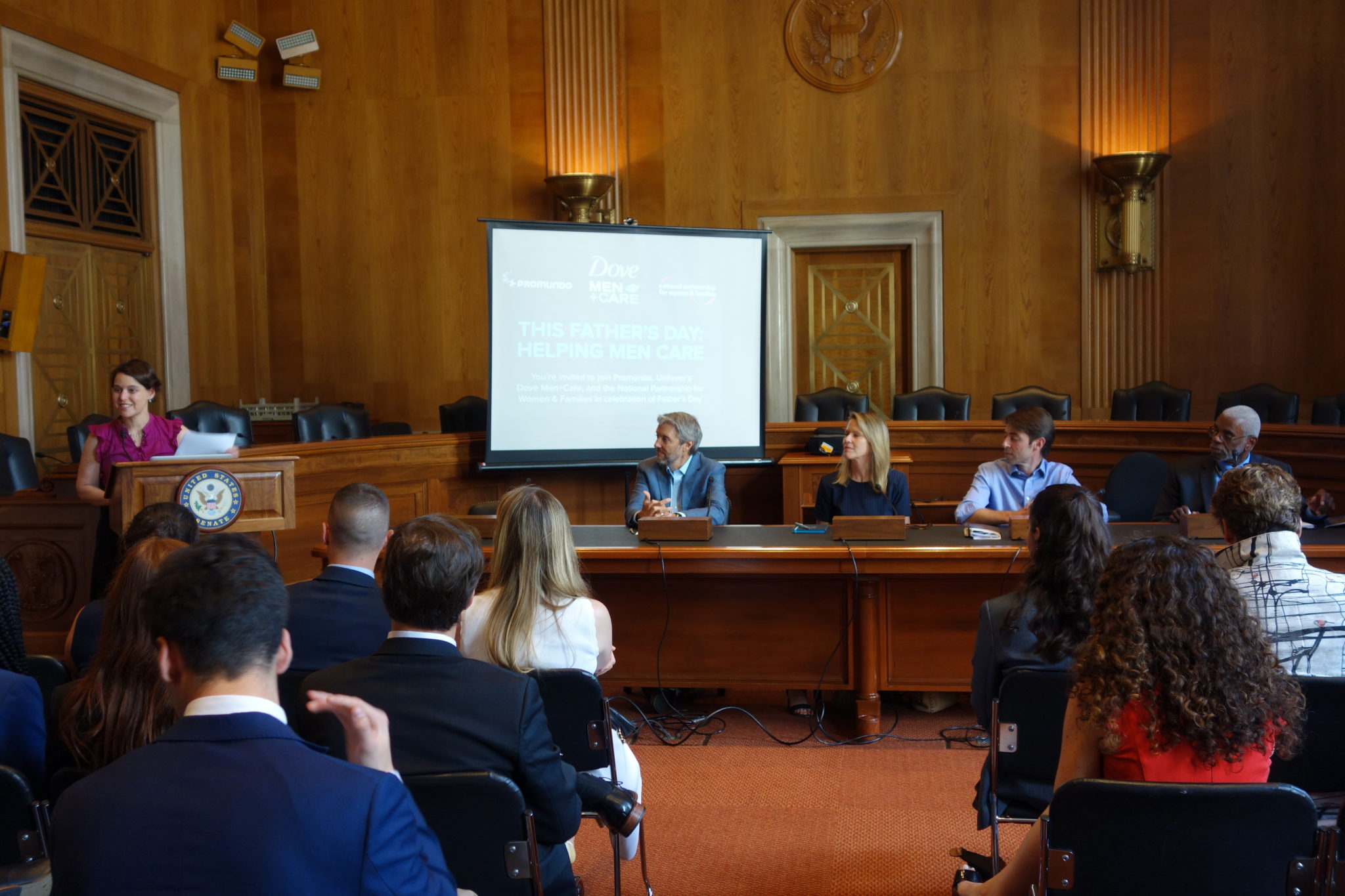Equimundo and Dove Men+Care partnered to carry out a pioneering study on what keeps fathers from taking parental leave and being the fully engaged caregivers they want to be.
The results – released in the Ajudando os pais a cuidar report – confirm first and foremost that fathers want to be involved. The research was shared at a Congressional Briefing at the United States Senate on July 12, 2018 co-hosted by the National Partnerships for Women & Families.
Why this study?
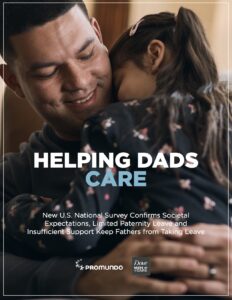 Over the past 30 years, fathers in the United States have increased the time they spend with their children by nearly a third. More and more, both men and women want to equally share the care of children. Still, men are doing less caregiving than women.
Over the past 30 years, fathers in the United States have increased the time they spend with their children by nearly a third. More and more, both men and women want to equally share the care of children. Still, men are doing less caregiving than women.
Why? In part, it’s because fathers, like mothers and other caregivers, need support to care for their children, including time off from work after the birth or adoption of a child. The United States continues to be the only advanced economy in the world that does not provide nationally guaranteed paid parental leave.
Even unpaid leave is hard to come by in the United States. The latest figures show that fewer than 40% of workers, men and women, are eligible for and can afford to use unpaid leave under the Family and Medical Leave Act. In terms of paid parental leave, access is lower still, with only 15% of male and female workers able to access paid leave through their employer.
However, even when women and men have access to paid leave, many parents – particularly fathers – don’t use it all. To explore this critical issue impacting men, women, and future generations, Equimundo and Dove Men+Care carried out an online survey of men and women aged 25 to 45, including 1,088 men (83% of whom were fathers) and 626 women (64% of whom were mothers).
Results:
O estudo constatou que 73% dos pais concordaram que havia pouco apoio no local de trabalho para os pais, e um em cada cinco homens temia perder o emprego se aproveitasse toda a licença-paternidade oferecida. Vale ressaltar que 69% dos pais confirmaram que mudariam de emprego para passar mais tempo com os filhos. Os resultados também mostraram que os homens relataram estar mais satisfeitos com suas vidas, incluindo a vida sexual, quando podem ser os cuidadores que desejam ser.
O que os impede? Os pais se preocupam com o que os outros vão pensar se priorizarem os filhos em detrimento do trabalho, e temem que sua renda, e a renda da família, seja prejudicada se tirarem licença parental. Além disso, dois estereótipos tradicionais ainda são barreiras significativas: a de que os homens devem ser os principais provedores e a de que as mulheres devem ser as principais cuidadoras das crianças.
Poucos locais de trabalho oferecem licença remunerada para os pais e, mesmo quando oferecem, poucos pais tiram a licença integral porque se preocupam com o que os outros pensam deles, principalmente no trabalho.
Additional key insights:
- Women and men say that caring for their children matters to them equally and that they would go to the same lengths to have time with their children.
- Fathers are more likely to take paternity leave if their workplaces offer flexible working arrangements, if their own parents support them in taking it, and if they have more control over their own work lives.
- Men and women underestimate their managers’ support for paternity leave.
- Men and women doubt the benefits of extended parental leave for fathers, especially those benefits that are less intuitive.
- Both men and women tend to believe they are better at their traditional roles than the other gender, but equal to the other gender in non-traditional roles.
- Both fathers and mothers say they face challenges to being fully involved parents due to pressure at work, but fathers perceive even greater barriers.
The study confirms that men want to be involved caregivers. Outdated social norms and a lack of support from workplaces, as well as other social touch points, are all too often barriers to men’s equitable participation in care work. Supporting fathers in accessing paternity leave will help men be the parents they want to be and will contribute to advancing gender equality both in the home and in society more broadly, further empowering women across different domains of their lives.
O Ajudando os pais a cuidar report is available online aqui.
View photos from the Congressional Briefing here:
